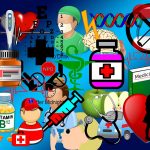A few months ago, I decided to conduct an informal survey. I’d begun thinking …
Culturally & Linguistically Appropriate
A practical way to address unconscious bias in language
Over the course of last year, I spoke several times with an African American …
[Read more...] about A practical way to address unconscious bias in language
2 ways to improve your medical metaphors
A physician was talking with me about an article I wrote on metaphors, a few …
[Read more...] about 2 ways to improve your medical metaphors
Make this one change to improve your patient education
A while ago, I wrote a piece called 5 steps to improve your patient education. …
[Read more...] about Make this one change to improve your patient education
Why addressing unconscious bias can make people nervous
Last week I was in Baltimore, at the International Conference on Communication …
[Read more...] about Why addressing unconscious bias can make people nervous
Reach more patients by reducing cultural bias in your metaphors and analogies
Metaphors and analogies are favored tools of poets -- and doctors. They …
[Read more...] about Reach more patients by reducing cultural bias in your metaphors and analogies






